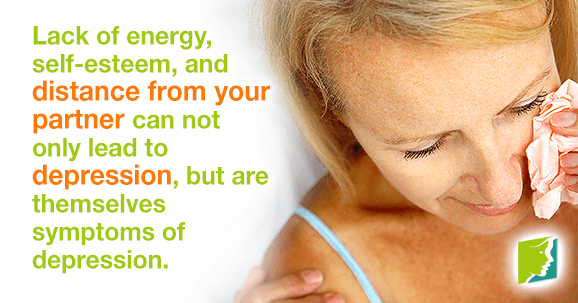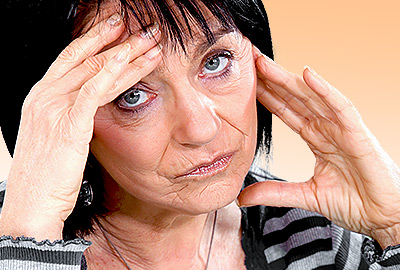During menopause, low libido and depression are very common. This is because at this time, hormones such as estrogen and testosterone decrease dramatically. While estrogen is responsible for arousal, testosterone is necessary for a general interest in sex among women. At the same time, women may also notice that they are not as happy and energized as usual. This can be upsetting, especially on top of the fact that sexual habits are changing and other menopausal difficulties are arising. It may lead women to wonder if the two circumstances are related.
Symptoms of Low Libido
Low libido is characterized by a decrease in sex drive, which can occur as a result of hormonal changes, lifestyle choices, and stress. It is accompanied by a general decrease in circulation to the sex organs, which results in less lubrication and sensitivity. Loss of libido is also associated with distraction, fatigue, and a general disinterest in sex. One experiencing low libido may have feelings of self-consciousness and have trouble connecting with their partner physically and emotionally.
Symptoms of Depression
Depression is also often triggered by hormonal changes, lifestyle choices, and stress. Decreased circulation through the body can result in a mental fog that impacts determination and joy. In addition, the drop in estrogen can cause the neurotransmitters responsible for happiness, such as serotonin and endorphines, to decline. This leads to sadness, hopelessness, fatigue, and a general disinterest in one's favorite activities. It can cause distance between a woman and her friends and family.
How the Symptoms Connect
When expressions of affection are altered by intense bodily changes and emotional shifts, it is completely natural for one to experience feelings of depression. Lack of energy, self-esteem, and distance from your significant other don't just lead to depression, but are themselves symptoms of depression. Your low libido can drain your emotional state and induce feelings of sadness and loneliness. Low libido and depression during menopause also have the same underlying causes, making their effects intertwined for many women.
Ways to Overcome Both
A sedentary lifestyle is one of the most important factors in regard to depression and low libido. Make sure to get 2.5 hours of cardiovascular exercise per week to help increase circulation to your brain and sex organs. This will also increase serotonin levels, which can make you happier and more likely to desire sexual activity. Also, eat plenty of whole grains, fruit, nuts, colorful veggies, and lean protein. You can also boost your estrogen levels, your mood, and your sex drive with phytoestrogenic herbs such as black cohosh.
As you can imagine, low libido can influence your moods and well-being. Not being able to connect with your partner in an intimate way can be difficult to deal with and often results in an emotional slump. Instead of feeling trapped by these physical and emotional symptoms, try adjusting your lifestyle and supplementing your diet with beneficial herbs.
For more information on depression and treatments, follow the links below.
Sources
- Better Health Channel. (2013). Menopause. Retrieved May 13, 2014, from http://www.betterhealth.vic.gov.au/bhcv2/bhcarticles.nsf/pages/Menopause?open
- National Institutes of Health. (2014). Depression. Retrieved May 13, 2014, from http://www.nlm.nih.gov/medlineplus/depression.html
- National Institutes of Health. (2013). Physical activity: MedlinePlus Medical Encyclopedia. Retrieved May 13, 2014, from http://www.nlm.nih.gov/medlineplus/ency/article/001941.htm
- Office of Dietary Supplements. (2008). Black Cohosh. Retrieved May 13, 2014, from http://ods.od.nih.gov/factsheets/BlackCohosh-HealthProfessional/




